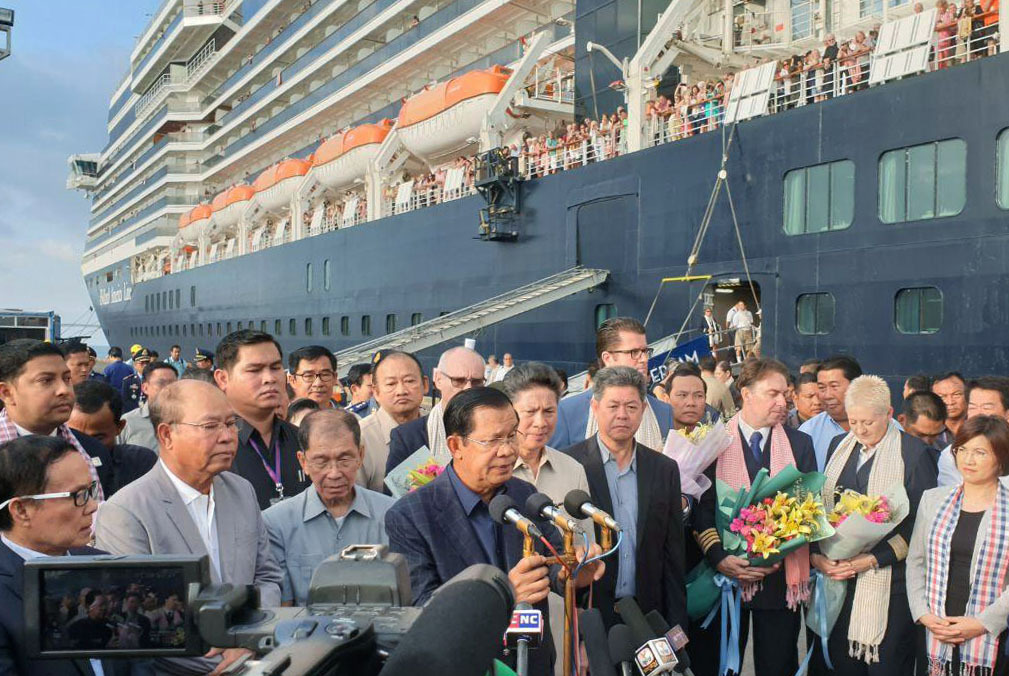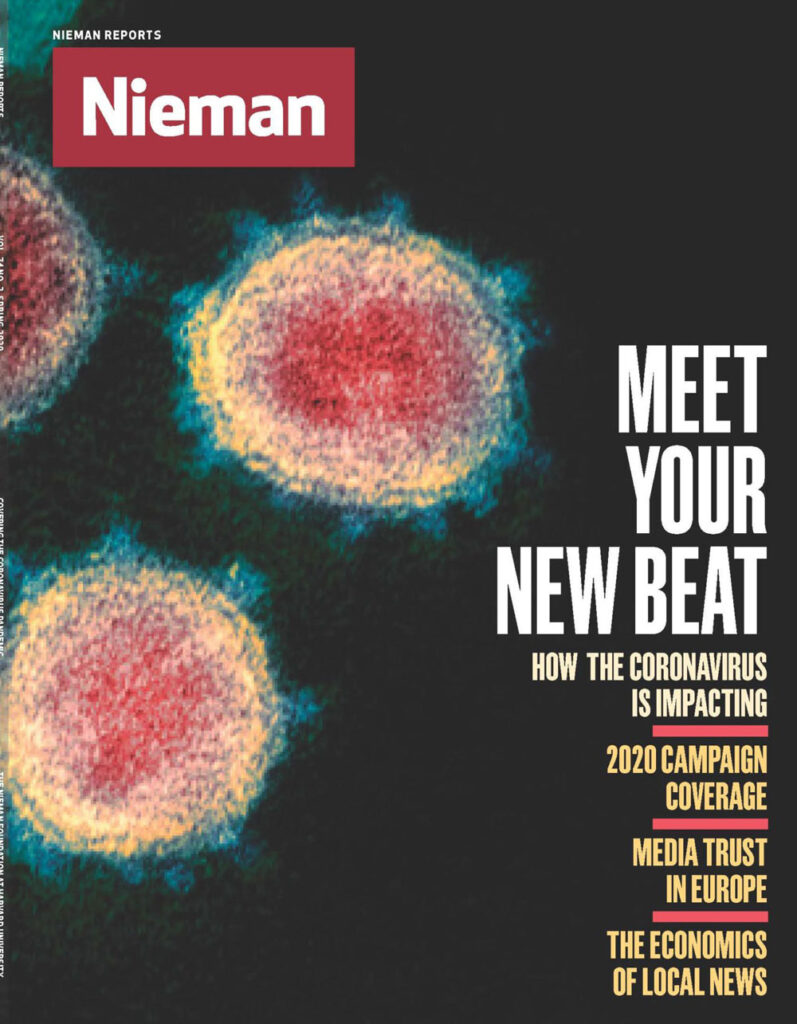Unsurprisingly, a global pandemic is a political opportunity for leaders to expand state powers and cement authoritarian rule. Civil society, journalists, and academics have long documented opportunistic expansions of state power during periods of unrest and instability. Crises allow “would-be authoritarians an escape from constitutional shackles,” say political scientists Steven Levitsky and Daniel Ziblatt. In just a few short months, Covid-19 has emboldened leaders to both expand and centralize state power at an unprecedented pace.
At the Technology and Social Change Research Project at Harvard Kennedy School’s Shorenstein Center, we are noticing alarming trends wherein ill-defined categorizations of “fake news” and misinformation are being used as justification for undue censorship and the suspension of civil liberties. For example, in Iran, where the novel coronavirus has wreaked havoc, government attempts to muzzle critics have led to the harassment, detention, and censoring of journalists and social media users. Merely questioning government reports on Covid-19 has caused backlash from the authorities. When two journalists were summoned by Iranian intelligence agents, they were told that “releasing information in this sensitive time is like cooperation with adversary states.”
Iran’s intervention in journalism is emblematic of a growing trend in the use of censorship to curtail press freedoms, intimidate dissidents, and prop up authoritarian leaders in a time of crisis. This hostile situation unfortunately leaves journalists, along with civil society, stuck in a war on two fronts: one against increasingly draconian measures to limit speech and another against a deluge of lies and misinformation online.
For journalists, this presents new and difficult challenges for providing timely, local, and relevant information, and an increased danger to their lives. The situation is severe enough that the Columbia Journalism Review in a headline on a piece by Joel Simon, executive director of the Committee to Protect Journalists, referred to it as a “global press-freedom crackdown.”
Recently, South Africa has made it a criminal offense to spread disinformation about the disease, though it remains to be seen how intention and veracity will be determined. Egypt has revoked the press credentials of a journalist with The Guardian and censured The New York Times Cairo bureau chief over "bad faith" reporting on the country's Covid-19 cases. Meanwhile, Russia has ordered tech platforms to remove “fake news” regarding the pandemic lest they face “stringent” action.
The upward trend in information controls is not limited to foreign states. In the United States, President Trump and his administration have repeatedly misled the public by promoting unproven treatments, playing down the severity of the pandemic in its initial outbreak, and limiting access to information for journalists, leading to a number of FOIA requests.
More direct assaults on the democratic process are also underway in the name of fighting Covid-19. Cambodia, in an ambitious power grab, has drafted a state of emergency bill that would prohibit the distribution of information that could “generate public alarm or fear or generate unrest.” The draft bill is so extreme that Human Rights Watch warned that it would “allow the government to restrict all civil and political liberties and target human rights, democracy, and media groups.”
Similarly, Hungary’s Viktor Orbán and his party Fidesz voted on March 30th to cancel all elections and allow the prime minister to rule by decree indefinitely. Already the law has resulted in sources being fearful of speaking to the press, while journalists report being denied access to information and being threatened.
Understandably, mitigating against the spread of false and potentially harmful health information is important in the fight against Covid-19. But disproportionate fines and jail terms combined with vague definitions, selective censorship, little recourse, and no oversight are ripe for abuse and the further targeting of journalists. This scenario is a dire one. If accurate and timely information is in the public interest, along with a free and independent press, journalists are going to need allies.
There are three ways civil society, academia, and fellow journalists can fight this dual-pronged attack on press freedom and democratic participation.
First, civil society is in a prime position to push back against undue censorship and attacks on the free press. Not only are activists and NGOs connected with issues most salient to the public, but their international networks and connections with intergovernmental bodies can be leveraged to document violations of civil liberties.
For example, Chinese Human Rights Defenders (CHRD), an organization that promotes grassroots activism and human rights in China, has not only documented and provided analysis regarding Covid-19 and censorship but actively engages with the United Nations. Indeed many other international advocacy organizations do similar engagements, but they must come together in innovative ways to combat the growing threat to press freedom. Years of network and capacity building have prepared civil society for just such a moment. Now is the time to experiment with broad coalitions.
Academic freedom and freedom of speech are codependent, making for another point of common cause between academics, researchers, and journalists. In Bangladesh, for example, information controls have expanded to target academics. In Malaysia, the Universities and University College Act 1971 has historically been used to repress academic freedom, university autonomy, and exercise extreme political control. Although universities and research centers must hold themselves to a high standard of academic rigor, this does not mean remaining silent when others depend on evidence. This means not only sharing research with journalists, but taking a position and speaking out when necessary, even on matters that may be politically charged.
Lastly, international journalism and cross-border reporting can help journalists and press freedom overall. Where local journalists are fearful of government retaliation, foreign outlets and journalists in a different jurisdiction can help. Take the 1MDB financial scandal, for example. Following explosive allegations in 2015 that Malaysian Prime Minister Najib Razak was involved in a massive multi-billion dollar financial scandal, domestic journalists and media outlets were targeted with arrests, harassment, and content blocking. However, foreign reporting from The Wall Street Journal and The Sarawak Report helped shed light on the extent of the corruption as well as bring international attention to the matter. As countries attempt to establish digital borders, cross-border reporting can help illuminate what otherwise might be a black box of corruption and state control.
What’s novel about the pandemic isn’t the authoritarian response. What’s different is the scale and speed with which it’s happening all over the world at the same time. But authoritarian overreach doesn’t have to be the only hallmark of the pandemic. With extraordinary measures should come extraordinary oversight. This era will also be marked by how journalists and their allies respond in this two-front war against misinformation and censorship, and hopefully stand as testament to what can be achieved amidst a global crisis.




